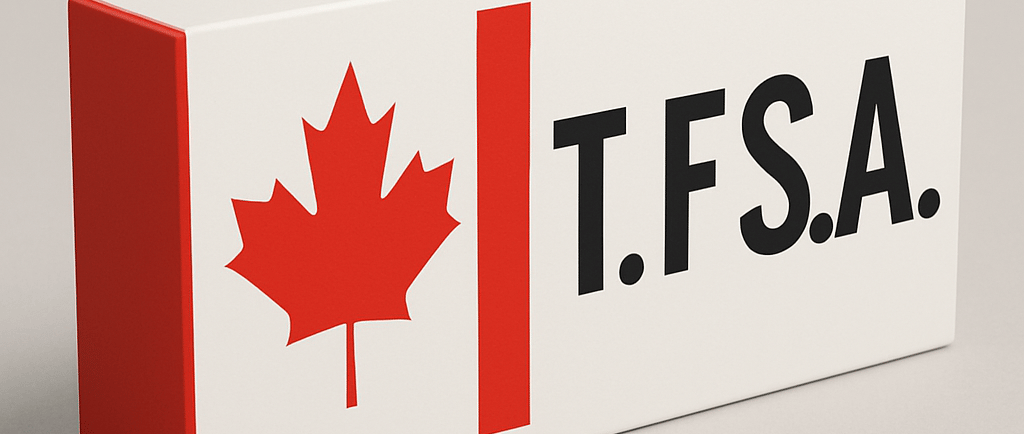TFSA Mistakes to Avoid and How to Transfer Your TFSA Tax-Efficiently to the Next Generation
Learn the most common TFSA mistakes, practical tips to maximize tax-free growth, and CRA-verified steps to transfer a TFSA to the next generation efficiently.
GUIDES
@StartRightCan
11/21/20253 min read


TFSA Mistakes to Avoid and the Most Tax-Efficient Way to Transfer It to the Next Generation
The Tax-Free Savings Account (TFSA) is one of the strongest financial tools in Canada—yet one of the most misused. Many Canadians unknowingly lose out on tax-free growth or make costly errors that trigger CRA penalties. Even fewer understand how the TFSA passes to the next generation.
This guide explains practical TFSA tips, the most common mistakes, and the cleanest way to transfer a TFSA upon death using verified CRA and Income Tax Act (ITA) rules.
What Is a TFSA?
A TFSA allows Canadians aged 18+ with a valid SIN to save and invest with tax-free growth. Interest, dividends, and capital gains are all tax-free inside a TFSA.
Source: CRA TFSA Guide (RC4466)
https://www.canada.ca/en/revenue-agency/services/forms-publications/publications/rc4466.html
How contribution room works:
Annual limit
Unused room from past years
Withdrawals from the previous year
Withdrawals do not create immediate room. Contribution room only resets January 1 of the next year.
Source: CRA Withdrawals
https://www.canada.ca/en/revenue-agency/services/tax/individuals/topics/tax-free-savings-account/withdraw.html
If you transfer your TFSA to another bank, always do a direct transfer to avoid accidental over-contribution.
Source: CRA Transfers
https://www.canada.ca/en/revenue-agency/services/tax/individuals/topics/tax-free-savings-account/transfer.html
Practical TFSA Tips You Can Use Today
1. Track your own TFSA contribution room
Financial institutions report your activity to CRA, but CRA lists can lag. Keep your own simple record to avoid penalties.
2. Use your TFSA for long-term investing, not just saving
High-growth investments benefit most from tax-free compounding. However, before making any financial investment in your TFSA, seek advice from a licensed financial advisor.
3. Prioritise TFSA withdrawals over RRSP withdrawals
TFSA withdrawals are tax-free. RRSP withdrawals are taxable and permanently reduce retirement savings.
4. Consolidate TFSA accounts
Fewer accounts reduce tracking mistakes and simplify transfers.
Common TFSA Mistakes and How to Avoid Them
Mistake 1: Re-contributing too soon after withdrawing
Example:
No available room
Withdraw $5,000 today
Re-contribute $5,000 next week
→ You have over-contributed.
Fix: Only re-contribute withdrawal amounts next calendar year, unless you already had unused room.
Mistake 2: Moving your TFSA between banks by withdrawing it
A withdrawal + re-contribution counts as new contributions.
Fix: Always ask the new institution to perform a direct TFSA transfer.
Mistake 3: Not naming a successor holder or beneficiary
This error causes:
Taxable growth after death
Probate delays
Loss of tax-free status for the surviving spouse
More on this in the next section.
How to Transfer a TFSA to the Next Generation
The tax outcome depends entirely on the designation written in your TFSA contract. There are two options, and the difference is massive.
Option 1: Name a Successor Holder (Best for Spouses)
A successor holder is usually your spouse or common-law partner. They become the new TFSA holder immediatelyupon your death.
Why this is the most tax-efficient option
Full TFSA stays tax-free
No contribution room needed
No tax on income earned after death
No probate
No delays or paperwork beyond notifying the institution
CRA Source: Successor Holder
https://www.canada.ca/en/revenue-agency/services/tax/individuals/topics/tax-free-savings-account/death-of-holder/successor-holder.html
Example
A TFSA worth $120,000 at death transfers directly to the spouse, who continues it as their own TFSA. Growth remains sheltered.
Option 2: Name a Designated Beneficiary (For Children or Anyone Else)
A beneficiary receives the TFSA value, not the account.
Key rules
Amount up to date-of-death value = tax-free
Growth after death = taxable
Spouses can make an exempt contribution (Form RC240)
Children or others must have enough TFSA room to re-invest
CRA Source: Beneficiary Rules
https://www.canada.ca/en/revenue-agency/services/tax/individuals/topics/tax-free-savings-account/death-of-holder/beneficiary.html
Example
Parent dies with TFSA worth $80,000.
Child receives $80,000 tax-free.
If the child deposits it into their TFSA, they must have contribution room. Otherwise, CRA charges the excess contribution tax (1% per month).
What the Law Says (Income Tax Act References)
ITA Section 146.2 governs TFSA rules:
Eligibility
Tax-free growth
Excess contribution tax
Holder rules
https://laws-lois.justice.gc.ca/eng/acts/I-3.3/section-146.2.html
Checklist for Tax-Efficient TFSA Transfer
During your lifetime
Name your spouse as successor holder
If naming children, use beneficiary
Align designations with your will
Tell your executor where the account is
After death
Executor contacts TFSA issuer immediately
Confirm successor holder or beneficiary
Transfer or close account quickly to avoid taxable growth
If spouse is beneficiary (not successor), file RC240
If children inherit TFSA money, confirm their room before depositing
FAQs
1. What happens to a TFSA when someone dies?
If a spouse is named successor holder, the TFSA continues tax-free. If a beneficiary is named, the beneficiary receives the money but must follow TFSA rules.
2. Can children inherit a TFSA tax-free?
Yes, the amount up to the date-of-death value is tax-free. But they cannot take over the TFSA account itself.
3. Is TFSA inheritance taxable?
The TFSA value at date of death is tax-free. Growth after death may be taxable unless there is a successor holder.
4. How do I avoid TFSA over-contribution penalties?
Track your own room and re-contribute withdrawals only the next calendar year.
Follow @startrightcan on X/Twitter and Instagram for more.
Get your copy of 'Starting Right: The Newcomer's Guide to Canada's Financial System' here: https://www.amazon.ca/dp/B0G2XHD1ZF